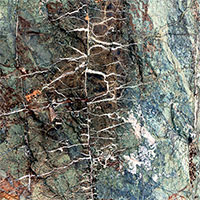During menstruation, these women have to live in makeshift warehouses or sleep with cattle…
The spiritual culture of Hindus is extremely rich. But few people know that, to this day, Hindus still apply many “special” customs for women and one of them is the Chaupadi custom – banishing women when they have their period in Nepal.

Jaukala (14 years old) has to live in a makeshift warehouse because she is approaching the red light day.
Chaupadi has been a traditional practice of Hindus throughout the centuries. Accordingly, the woman will be chased away by everyone, shunned every time she has her period because they think it is unclean.

Sometimes these women have to live with the goat herd.
During this time, women (including children reaching puberty) are not allowed to touch utensils in the kitchen, not to share a water source with the rest of the family. In addition, they are not allowed to go to school, even kicked out of the house, have to stay in huts, rudimentary shacks or cow stables.

Image of people living in isolation at a rock formation in Kalekanda village, Nepal.
Worse yet, they are not allowed to shower or brush their hair. Being kicked out of the shack, the tent was separate, but the essential items to repel wild animals, insects, and venomous snakes were completely absent.
Not only that, the risk of these women being raped is extremely high because they have to live in a completely separate place. The unsanitary environment puts them at risk of infectious, infectious and respiratory diseases.
Not stopping there, women after giving birth are also considered unclean and have to live in isolation with similar conditions. Too weak and exhausted after the “birth”, plus the lack of family care has caused many tragic deaths of mother and child.

A group of young women are chatting before sleeping under a rock formation.
The period after giving birth is a torture for Nepalese women. Having lost too much blood, and suffered from severe infections due to unsecured medical conditions, they had to try hard to take care of their small child without any help from their loved ones. That is why there are many cases where mother and child died a few days after giving birth.
For Hindus, this Chaupadi custom is a religious tradition associated with spirituality. According to legend, the gods would vent their anger on the family where the woman was on her period. Therefore, in order to avoid the family disaster, they were forced to leave home, enduring extreme hardship these days.

Nabina (17 years old) and Khadi (14 years old) are huddled around the fire in the family cellar.
Although it is a tradition, its consequences go beyond what tradition or religion can accept. Girls who reach puberty will have to endure many psychological shocks, live in fear and anxiety when they are about to go through hard days.
After the end of the menstrual cycle, the women must bathe with cow urine. The people of Nepal believe that only cow urine is pure enough to remove this uncleanness.

Makeshift shacks were erected – a shelter for Nepalese women during menstruation.
This shows that there is discrimination against Nepalese women. In addition to being exposed to many dangers, they must resist the risk of being raped by the village man. This further shows their disdain for women.
Suppressed and pressured by their parents, Nepalese women are slipping downhill because of less education and subjugation to the elders in the village.
Women who dare to break tradition will face an extremely violent reaction and boycott of the whole village. These things have pushed women into isolation, without a voice. But change is not easy. Just as the roots of a tree have been ingrained for generations, any change will be seen as too radical and unrealistic.

Because she cannot use the same water source as the villagers, this woman is forced to travel long distances to find water.
Women are not equipped with the necessary knowledge, do not even know how to use clean bandages, so they have to let the blood get on their clothes. Topics like “puberty” or the like in the family are always taboo, especially for women because they think it shows disrespect to adults and brings happiness. disgrace to the family.
Shobha – a young Nepali woman fortunately exposed to the modern world when she met a girl from CARE (Cooperative for American Remittances to Europe – a humanitarian organization supporting international development). She was placed in a medical facility instead of living in camps to ensure safety and sanitation.

This little girl spent “a good night’s sleep” with the cattle.
Through that, Shobha learned how to use a clean towel when the day came and now no longer has to walk around the village with bloodied clothes. This shows that community education is very necessary and effective, but it needs to be done gently, not forcefully.

Maisara (15 years old) prepares to sleep in an exposed rock formation while observing the Chaupadi custom.
Nepalese women also need to know whether they have a choice to follow this tradition – or custom – or not. CARE in Nepal and several other countries is trying to increase the influence of law and education on the behavior of the Hindu community around the world to partially reform these terrible practices.

